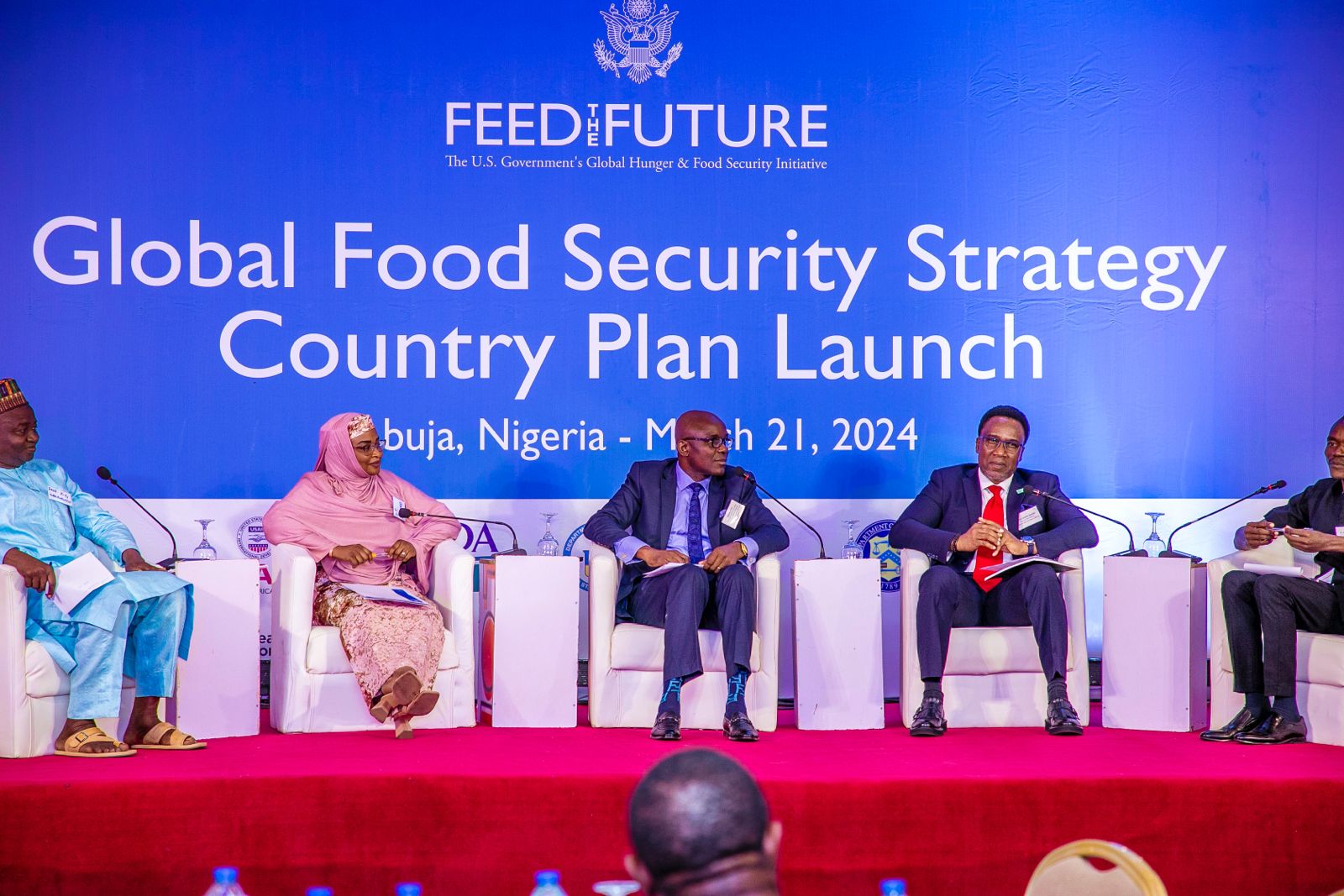NiMet DG advocates for effective early warning system to bolster food security in Nigeria

The Director-General and Chief Executive Officer of the Nigerian Meteorological Agency (NiMet), Professor Charles Anosike, has emphasised the pivotal role of an effective early warning system in enhancing food security and mitigating climate-related disasters in Nigeria.
Speaking as a panelist during the launch of the USAID Global Food Security Strategy Country Plan in Abuja on Thursday, 21st March 2024, Professor Anosike underscored the significance of equipping farmers with comprehensive knowledge of weather patterns and seasonal forecasting.
During the panel discussion, which centered on the collaboration between development partners and Nigerian government agencies in ensuring food security, Professor Anosike highlighted the pressing food security challenges facing Nigeria.
He called for a paradigm shift towards integrating weather and climate-related factors into the entire agricultural value chain.
“NiMet is actively collaborating with partners to integrate weather and climate information into the agricultural value chain,” Professor Anosike stated. “Through mechanisms such as co-production, we facilitate seasonal climate prediction to provide early warning signals.”
He further explained that NiMet’s Annual Seasonal Climate Prediction (SCP) serves as a crucial tool for climate action, offering insights into weather and climate variability in the upcoming months.
The SCP outlines rainfall patterns and temperature fluctuations, empowering stakeholders to make informed decisions and enhance strategic planning.
Professor Anosike cautioned against the detrimental impact of unpredictable rainfall patterns and extreme weather events on agricultural productivity.
He stressed that such phenomena could exacerbate food and water scarcity, leading to income loss and heightened food insecurity.
Temperature variations, he noted, pose additional challenges by affecting crop growth, yield, and post-processing viability.
In light of these challenges, Anosike stressed the need for collaborative efforts to promote climate-smart agriculture and bolster the resilience of smallholder farmers.
He urged stakeholders to invest in preparedness measures and enhance response capabilities to mitigate the adverse effects of climate change.
“While climate change may not be the sole cause of our challenges, it acts as a ‘threat multiplier,’ exacerbating resource scarcity and deepening food insecurity,” Anosike concluded.
As Nigeria grapples with the complex interplay of climate variability and food security, Professor Anosike’s advocacy for an effective early warning system underscores the urgency of proactive measures to safeguard agricultural livelihoods and ensure sustainable food production.







